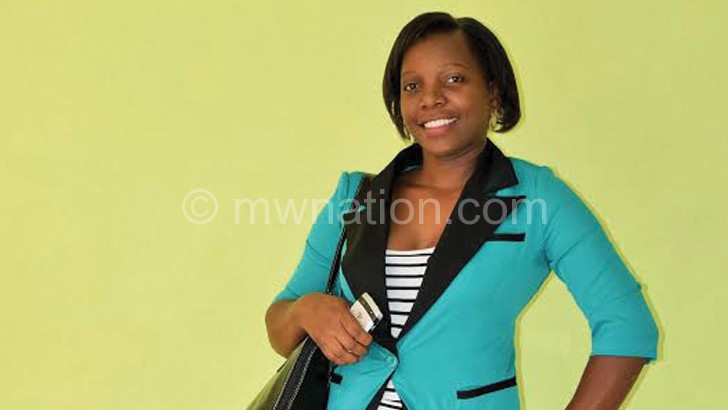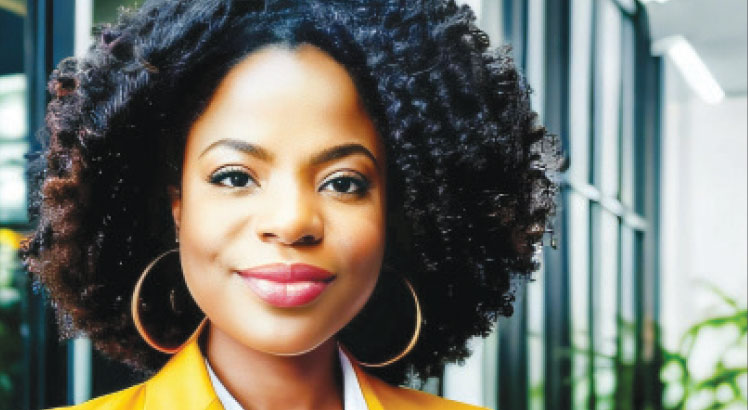Tadala thembakako: yali fellow 2015
‘Educate a girl, train a village’, goes the saying. Tadala Thembakako is a social justice advocate who believes in changing the world through the girl child as the beacon that carries tomorrow’s hope.
She believes deeds are great but words and messages that touch the heart can always go far, so she spreads messages of love, hope, determination and hard work to the girls she works with.
“For so long, women and girls have looked down on themselves and been looked down upon. My priority is to build resilience in the girl child,” she says.
She founded Girls with a Vision Association (Gwava) in September 2014 in Manyowe, Blantyre when she realised that only eight out of 200 girls in Manyowe would be selected to secondary schools in a year.

She made it a point to personally go and deliver motivational talks and give little tokens of appreciation every time they did well in school, just to encourage them to work hard. She also sent them role models.
From Manyowe, she now works with girls in Chigwaja and in Madisi. They have weekly meetings where with their teachers, peers and other girls who have gone to secondary schools they discuss relationships, careers, health and hygiene, among other things.
“With funds from well-wishers and from our own fundraising events, we also organise sponsorship for girls that have been selected to secondary schools and cannot afford fees. At the moment we are supporting two girls in secondary school and are providing school supplies to the under-privileged,” says Thembakako.
Strengthened by Joyce Banda Foundation’s four building blocks of excellence, global understanding, universal values and service to humanity Thembakako says she had her eyes on the prize of helping people one day.
“Our school motto was ‘laborarevinci’, we work to succeed and that is what has always guided me in the work that I do,” she says.
Who is Tadala?
I am 28 years old; a Bachelor of Arts – Humanities Degree holder from Chancellor College. I am fourth born in a family of six; a Church of Central Africa Presbyterian (CCAP) member and a Sunday school teacher.
I am very passionate about the girl child. As a Young African Leaders Initiative (Yali) 2015 Mandela Washington fellow, I am currently placed at a children’s home in Masvingo, Zimbabwe where I am implementing a mentorship program as part of my professional practicum.
How the idea came about
Walking in my neighbourhood one time; I met a girl, about 14 years old looking for a job as a house maid. I began chatting with her and learnt that her father was not supporting their family, and that her mother had been hospitalised.
Despite having an older brother, 17, they still decided that she was best placed to bring cash to the household. She was ready to quit school and go to work, to fend for her family.
I sat with her, made a budget of how much they would need per month, and it came to about K14 000. I personally offered to help. But then I thought giving her the money was not a lasting solution, I needed to equip her.
In my household, we had had a few maids from Manyowe, whom I believe if we gave them opportunities, they would make it in life. And I contemplated that even if I assisted two or three girls, I would be making a difference in the communities.
That girl is now in Form two, and Forum for African Women Educationists in Malawi (Fawema) takes care of her. In December 2013, I begun research to find out more about the issues girls were facing and in January I started engaging some girls from Manyowe Primary School.
What they do
We hold meet-ups with primary school girls from Manyowe and Chigwaja in Blantyre, and from Madisi. We have 50 of them in Manyowe, 25 in Chigwaja and 35 in Madisi. The girls discuss different topics including health issues, body care, menstrual issues, fitness and business skills.
We also impart cooking skills in them for instance, and how they can add value to products and sell them. We also equip them with ways of approaching their communities when asked to drop out of school. Madisi, for example, prioritises boys to stay in school and we teach the girls there how they can tackle such challenges. We do all these in various ways, including drama and music.
Challenges
I started Gwava from my little salary and with assistance from individual well-wishers. As much as funding has been a barrier to attaining greater achievements, the attitude of some people in the communities has also often left a challenge on my path, though it is nothing I cannot handle.
At the age of 28, when I try to work in the fight against early marriages, backlashes fall on me. Some people say, “your education will take you off the marriage potential rack so don’t lie to our children. We know feminists are bitter women who have either failed men or been failed by men and want the same for our children”.
Plans
My dream is to grow Gwava into something that is self-sustainable nationwide, with the ability to bridge girls education from primary school, all the way to tertiary level. We would also like to bring out the girls’ intrinsic talents so that they can do something valuable for their lives. We also plan to empower their mothers to make whatever little they can through enterprises, and provide for their children and be able to encourage their daughters in education. We want to train the women in service provision. In Madisi we have started a farming project rearing chickens and pigs, the proceeds from which, will see people through to their next stages.
What is your advice to young girls?
Everyone has enough time; what matters is how you use it. There is a time for everything and discipline is all it requires. In addition, people need to find what truly drives them and what they are passionate about. They need to search their souls and see what makes them tick and from that they can manage to set their priorities and be efficient in all they do. n



